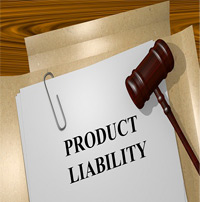 No one likes to be in pain; but for the millions struggling due to opioid addiction, and the massive generation of Baby Boomers growing older and experiencing the issues that come along with aging, this may be a daily reality.
No one likes to be in pain; but for the millions struggling due to opioid addiction, and the massive generation of Baby Boomers growing older and experiencing the issues that come along with aging, this may be a daily reality.
For many of those suffering and struggling with back pain, spinal cord stimulators have often been the go-to fix. They are now one of the fastest-growing products in the $400 billion medical device industry.
Spinal cord stimulators are medical devices that use electrical currents in order to block out pain signals before they communicate with the brain, therefore sparing many the discomfort.
While they have certainly helped a number of people, an Associated Press (AP) investigation found that spinal cord stimulators can be much more dangerous than many are aware.
Since 2008, more than 80,000 incidents have been reported to the Food and Drug Administration (FDA). That is the third-highest number of medical device injury reports, only behind insulin pumps and metal hip replacements.
According to data from the FDA, reported issues include shocks, burns, and nerve damage from muscle weakness to paraplegia. Though 60,000 stimulators are implanted annually, the FDA has approved them, despite a lack of significant clinical testing. This is in part due to the fact that the FDA is not always able to know the full extent of a device’s risks prior to it being on the market.
Lobbying records show that the top four manufacturers of spinal cord stimulators have invested more than $22 million all together since 2017 in the hopes of influencing legislation that benefits their business.
Another issue is that doctors sometimes promote these spinal cord stimulators without letting their patients know that the products’ manufacturers are compensating them. Many experts say that doctors do not have a legal obligation to disclose this to patients, though an ethical obligation still exists.
In 1976, Congress passed the Medical Device Amendments in order to ensure that patients who receive such devices recommended by their doctors would be served only a good purpose that would not do harm. Subsequently, the FDA created three classes of medical devices, dependent on their level of risk.
High-risk devices are held to the most stringent standards of clinical testing. However, a majority of devices have a much less rigorous process, requiring devices to be “substantially equivalent” to those devices already on the market. This has been the case for a lot of spinal cord stimulators.
Over 50 percent of patients told the AP that they only agreed to get the simulators due to a fear that their doctors would take away their pain medications. However, doctors are usually required by insurance companies to try other less-invasive methods before using a spinal cord stimulator in order for them to cover it.
If you or a loved one has been injured by a spinal cord stimulator or other medical device, it can cause a long-lasting, and in some cases, permanent injury. Though you may be unable to change what has happened, you may be able to receive compensation for your physical damages. The Philadelphia medical device lawyers at Brookman, Rosenberg, Brown & Sandler can help. For a free consultation, contact us online or call us at 215-569-4000 today. We service clients in Delaware County, Chester County, Philadelphia County, and across Pennsylvania and New Jersey.